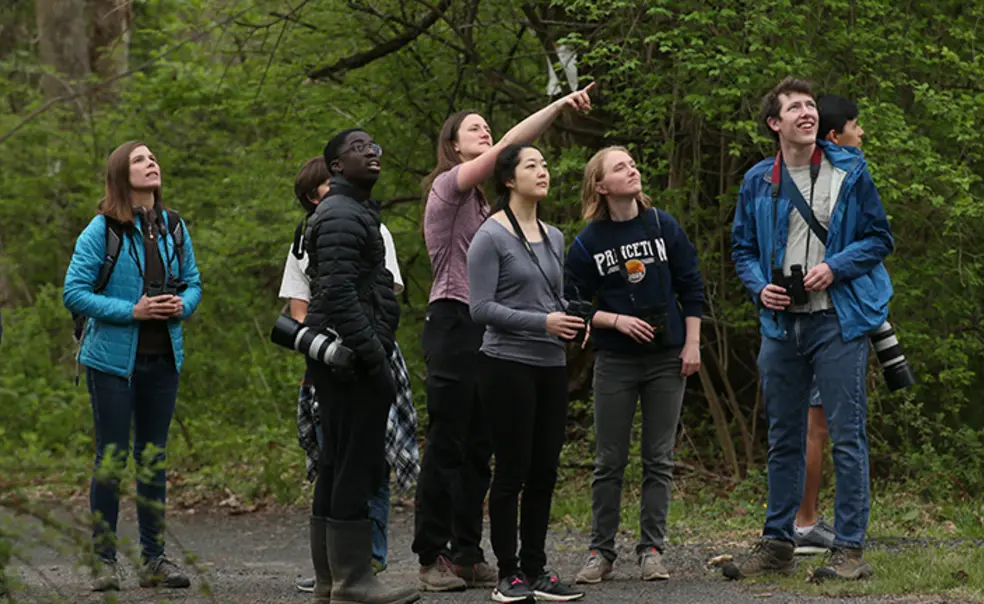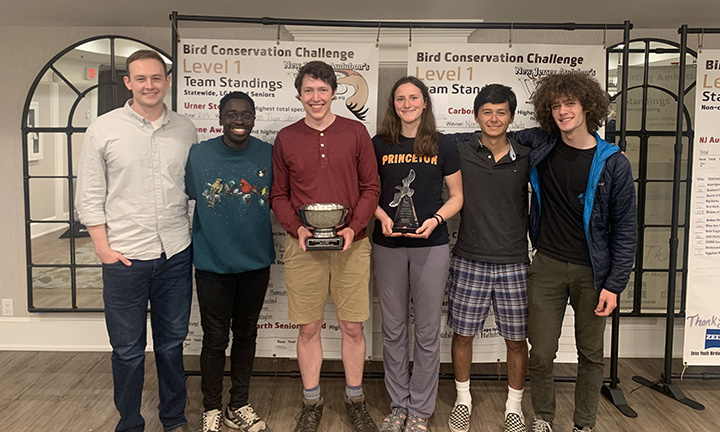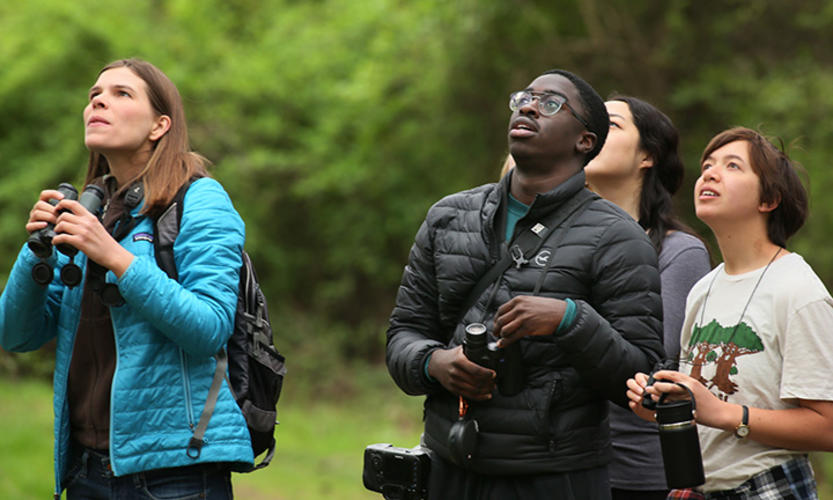Tigers Take First Place in New Jersey’s World Series of Birding
The first time Princeton students entered the 24-hour competition, they won
A loon was just visible off Alexander Street early one Saturday morning in mid-April, as eight students with the Princeton Birding Society walked deeper into the woods. A cardinal was spotted in a tree, and a blue jay’s call rang loudly nearby.
“Keep your eyes and ears peeled for anything you see or hear,” said Kojo Baidoo ’24, “and if you hear something weird, just call it out and we’ll all try to listen.” Ears pricked up.
“That’s a downy woodpecker,” said one of the group’s co-founders, Claire Wayner ’22, pointing up with one hand, binoculars in the other.
The uninitiated might have seen little besides budding trees and wildflowers on that 8 a.m. expedition, but this group saw more: the spring migration that each year brings a feathered frenzy to this part of New Jersey. Bird after bird was spotted and identified — but this was just a warm-up.
On May 14, six students from the society took first place in the World Series of Birding, a widely renowned competition held each year in New Jersey. Teams travel from the Delaware Water Gap to Cape May over 24 hours to see who can spot the most species. The Princeton Tiger Shrikes, named for one of the only birds with “tiger” in its name, saw 205. The team from Cornell — home to the prominent Cornell Lab of Ornithology — placed second with 191.
“This has been a dream of mine for a while,” said Wayner. Beating the longstanding Cornell team was icing on the cake.
Wayner started the birding society in 2019 with Joe Kawalec ’21. She grew up near Baltimore, and like a few others in the Princeton group was in the Youth Maryland Ornithological Society.
“There aren’t a lot of other young birders, so it can sometimes feel a little isolating,” Wayner said. “Now we have this really thriving group — it’s one of my favorite parts of Princeton and one of my fondest memories from here.”
Wayner said that in building a birding culture, it helped that three Princeton professors research birds. One is ecology and evolutionary biology professor Cassie Stoddard, the society’s faculty adviser. Students from the birding society have assisted her research on hummingbirds and climate change in Colorado; they’re passionate not only about birding but about the broader ecosystem, she said.
On campus, the society has undertaken a couple of conservation projects: putting up bird feeders and lobbying the University to cover clear glass windows with patterned films. For example, Prospect House’s glass-enclosed dining room makes birds think they can fly straight through, Wayner said.
Trekking through the woods that morning in April, Baidoo, also an alum of the Maryland group, said spring near Princeton is exciting because warblers — small, pretty songbirds — stop here on their migration route.“They’re kind of like the first splash of color that you get ... and for me, it’s like that little burst of hope,” he said. “It’s very cold; you kind of just want to curl up in bed. But coming down here and hearing that trill for the first time, it’s kind of a reminder that there are better days ahead.”
Not every society member is a seasoned birder; one student on the April hike said it was only her second birding expedition. But others got up at 3 a.m. for 10 days before the World Series to “scout” the areas where they’d be birding and develop a down-to-the-minute schedule for the big day.
That day unfortunately dawned rainy with winds blowing in the wrong direction. Thick fog rolled into Cape May by the time the Princeton team arrived. Much caffeine was consumed. Nevertheless, Wayner called it “a lot of fun.”And soon, anyone interested will be able to re-live it. The HBO show Real Sports with Bryant Gumbel followed the Princeton team during part of the World Series, and the footage will appear on the show’s July episode, Wayner said.
Editor’s note: This story has been updated with the correct month when Real Sports aired its story about the World Series of Birding.













No responses yet